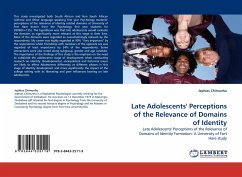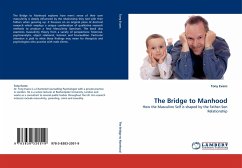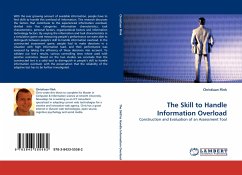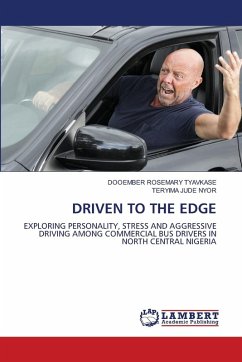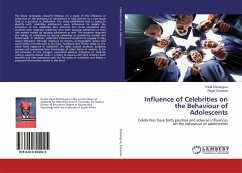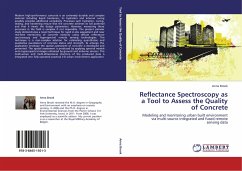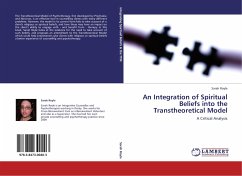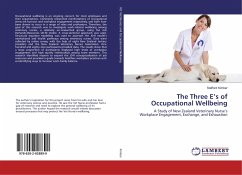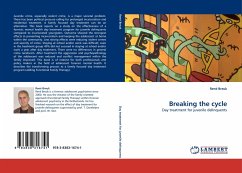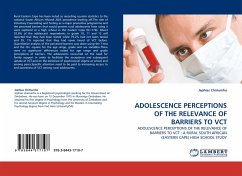
ADOLESCENCE PERCEPTIONS OF THE RELEVANCE OF BARRIERS TO VCT
ADOLESCENCE PERCEPTIONS OF THE RELEVANCE OF BARRIERS TO VCT ; A RURAL SOUTH AFRICAN (EASTERN CAPE) HIGH SCHOOL STUDY
Versandkostenfrei!
Versandfertig in 6-10 Tagen
32,99 €
inkl. MwSt.

PAYBACK Punkte
16 °P sammeln!
Rural Eastern Cape has been noted as recording counter statistics to the national South African HIVand AIDS prevalence leveling off.The role of Voluntary Counselling and Testing as a major preventive programme and the perceived barriers that would prevent rural adolescents from using it were explored at a high school in the Eastern Cape (N=178). About 20,8% of the adolescent respondents in grade 10, 11 and 12 self reported that they had been tested while 79,2% had not been tested and 55, 1% reported that they had never heard of VCT before. Quantitative analysis of the perceived barriers was do...
Rural Eastern Cape has been noted as recording counter statistics to the national South African HIVand AIDS prevalence leveling off.The role of Voluntary Counselling and Testing as a major preventive programme and the perceived barriers that would prevent rural adolescents from using it were explored at a high school in the Eastern Cape (N=178). About 20,8% of the adolescent respondents in grade 10, 11 and 12 self reported that they had been tested while 79,2% had not been tested and 55, 1% reported that they had never heard of VCT before. Quantitative analysis of the perceived barriers was done using the T-test and the Chi -square for the age range, grade and sex variables.There were no significant differences noted for age range and grade perceptions of barriers. The adolescents concurred on the need for family support in order to facilitate the acceptance and subsequent uptake of VCT,and on the existence of psychosocial stigma at school and among peers.Specific attention need to be paid to increasing access to and awareness of VCT among rural adolescents.



